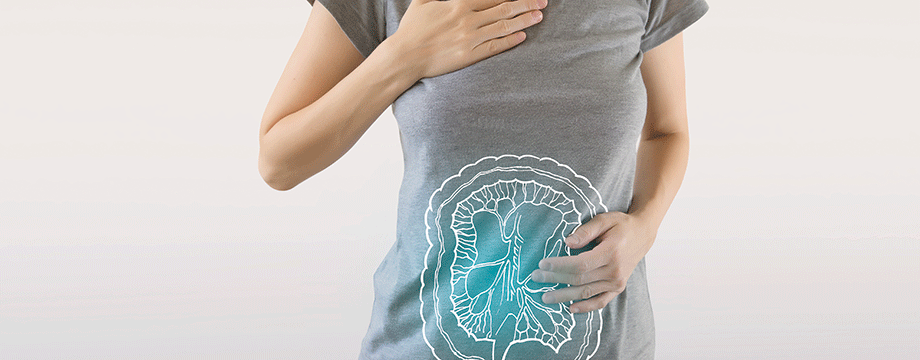12 ways to care for your gut

Dr Riccardo Di Cuffa from Your Doctor explains why a healthy and balanced gut is essential for good overall health and wellbeing
The gut – that long windy tube that is housed within your abdominal walls – runs a good 9 metres (30 feet) and harbours tens of trillions of gut microbiota. The gut is a hot house for a huge network of highly functioning cells and bacteria which work symbiotically to help our bodies digest food, produce particular vitamins, send our brain important messages and keep our immune systems and general health in check.
Each individual’s composition of the gut microbiota is unique and can weigh up to 2 kg! We now know that a healthy and balanced gut is absolutely key to ensuring good health and protection against many diseases, so here are some tips to help you look after your gut as well as possible.
1 Fermented foods
Possibly not everyone’s first choice, but these foods are rich in good, healthy bacteria. Natural live yogurt, kefir, sauerkraut and miso all contain bacteria which improve mineral absorption within the gut, thus boosting its overall health. For instance, yogurt contains Lactobacilli bacteria, which is believed to inhibit the development of inflammatory conditions such as IBS, joint pains and chronic diseases such as type 2 diabetes. Some studies have even suggested that eating moderate daily amounts of yogurt can reduce lactose intolerance by altering gut flora.
2 Fruit and veg
You may be eating five to preferably10 portions of fruit and veg a day, but are you eating a broad enough range? Eating a rainbow of vegetables, and to a lesser extent fruit, will mean delicious, healthy and high fibre meals that will restore and maintain harmony within your gut’s ecosystem and will help balance sugar levels out and prevent elevated bad cholesterol. Remember diversity is as important as volume.
3 Legumes
Pulses, lentils and the like are a rich source of fibre, and vitamins such as magnesium, folate and iron. They are also a great supplier of bacteria such as Bifidobacteria, a disease fighter.
4 Polyphenols
Surprisingly, some foods which have often been deemed ‘unhealthy’ can in fact benefit our guts. Foods such as dark chocolate and drinks like tea, coffee and red wine all include a group of flavonoids called polyphenols which provide gut bacteria with a vital energy source. This isn’t a green light to consume large volumes of any of them though! Moderation is still key.
5 Wholegrains
Unrefined carbohydrates such as quinoa, bulgar wheat and rye contain high fibre content which helps maintain gut health and the growth of good bacteria such as Bifidobacteria, Lactobacilli and Bacteroidetes, which in turn aid weight management by creating a sense of fullness, reducing inflammation and risk of heart disease.
6 Avoid sugar
The food that we eat can be broken down to feed either the good or the bad bacteria. Sugar feeds the bad bacteria which, when eaten excessively, can cause an imbalance within the gut which is likely to create health problems.
7 Avoid fried and processed foods
These foods break down to feed the bad gut bacteria and reduce the variety of species of good bacteria within the gut which puts a decline on your overall health.
8 Lack of sleep
Sleep allows your gut to eliminate toxins which have accumulated throughout the day, returning inflammatory markers to normal levels and rejuvenating the gut for the next day’s nutritional onslaught. Recent research suggests that fragmented sleep may trigger gut inflammation, leading to disruption of the metabolism, whilst better quality sleep helps to reduce the risk of weight gain and diabetes and improves your general metabolic health.
9 Antioxidants
Roughage such as Jerusalem artichokes, jicama and flaxseed can be tremendous for your gut as they are rich in fibre and antioxidants and fill your gut with lots of good bacteria, helping to ease the digestive process. Garlic is known to boost the creation of good gut microbes and recent research suggests that garlic might also help to prevent some gastrointestinal diseases.
10 Avoid the overuse of antibiotics
Antibiotics are indeed useful and often necessary when treating infections and other illnesses. However, whilst antibiotics attempt to kill off the infection, they also often kill off the friendly gut bacteria needed within the body. Avoid the overuse of antibiotics to keep your gut balanced and happy.
11 Probiotics and prebiotics
Prebiotics such as those found in garlic, onions, leeks, asparagus and artichoke, apples, and bananas are forms of important dietary fibre that act as a fertiliser for the good bacteria in your gut. Probiotics are live bacteria that can be found in yogurt and other fermented foods. The more natural prebiotic food that probiotic bacteria have to eat, the more efficiently these live bacteria work and the healthier your gut will be. Probiotics can have health benefits after a period of illness, particularly after using antibiotics and some other medications which alter gut bacteria. However, taking probiotic supplements on a daily basis may cause some minor health problems so talk to your GP first.
12 Fasting
Late night snacking and drinking prevents your gut from regenerating, contributing to bloating, gas, and food intolerance. Fasting gives your gut a break and kills unwanted bad gut bacteria and helps natural regeneration needed for healing digestive problems such as inflammatory bowel diseases and leaky gut.
Overall, a primarily plant-based diet, rich in pulses, legumes and whole grains will provide our gut with the perfect playground to help protect the rest of our bodies from chronic disease, cancers and unwanted inflammation. For more information visit your-doctor.co.uk
Read previous Your Health articles here...
Read articles from our latest issue here...